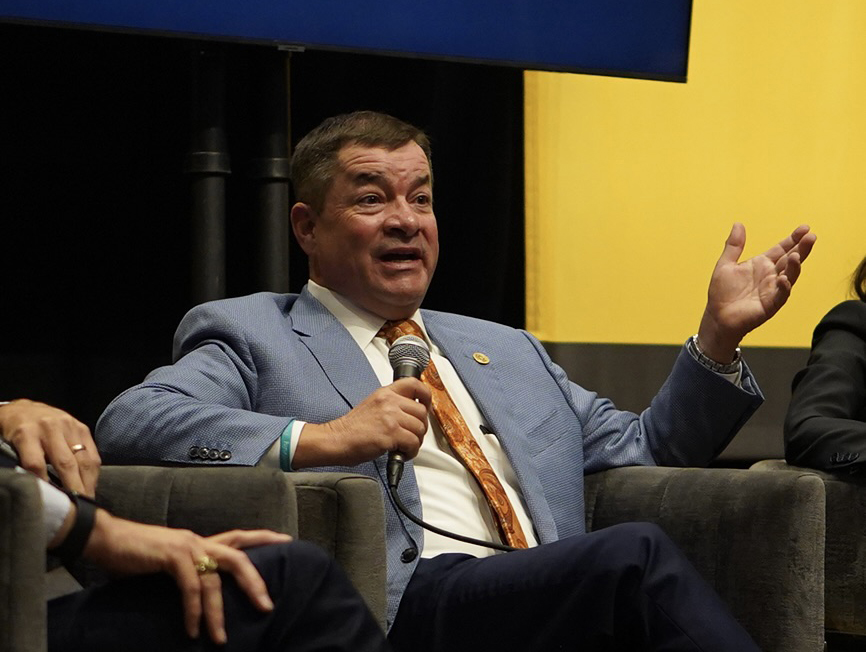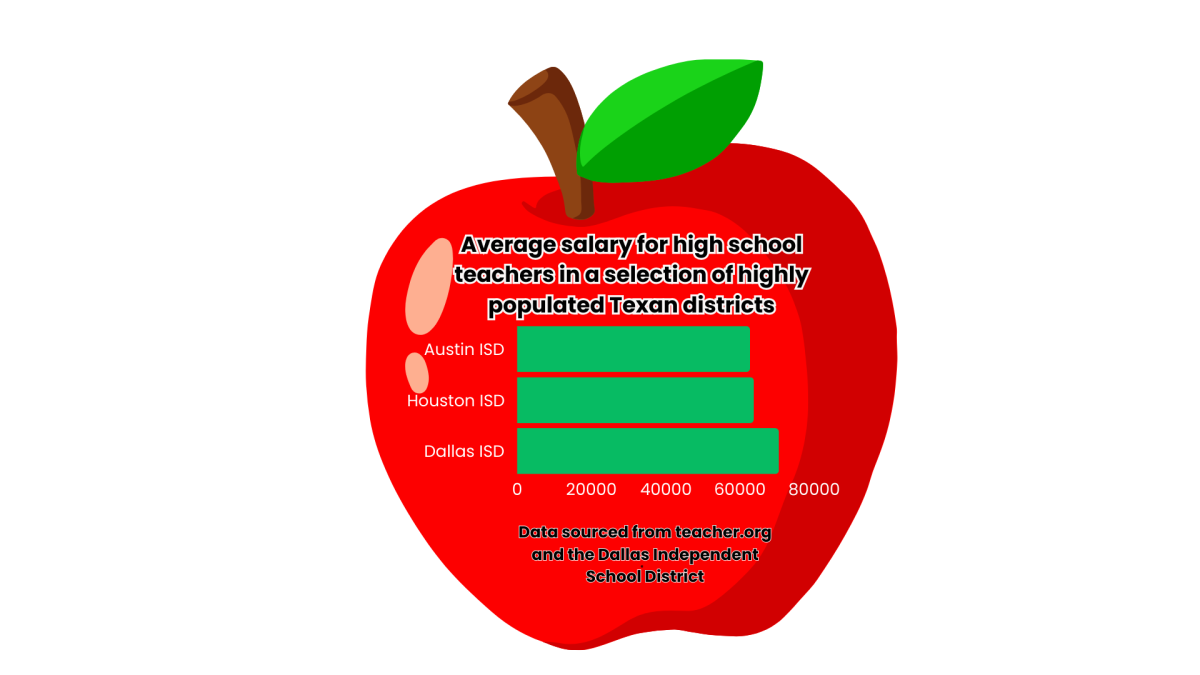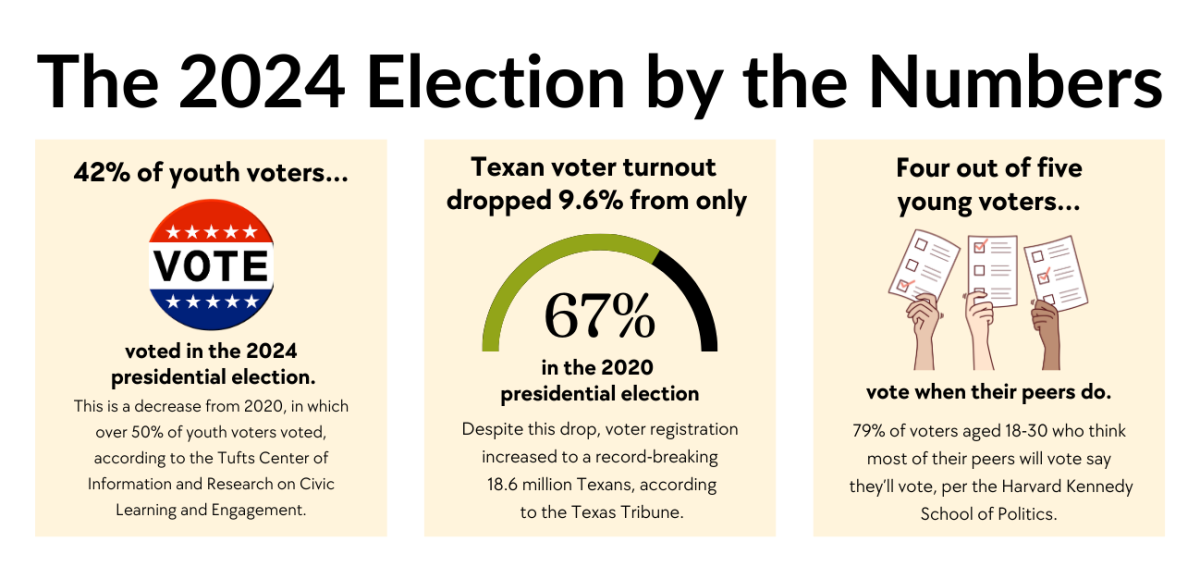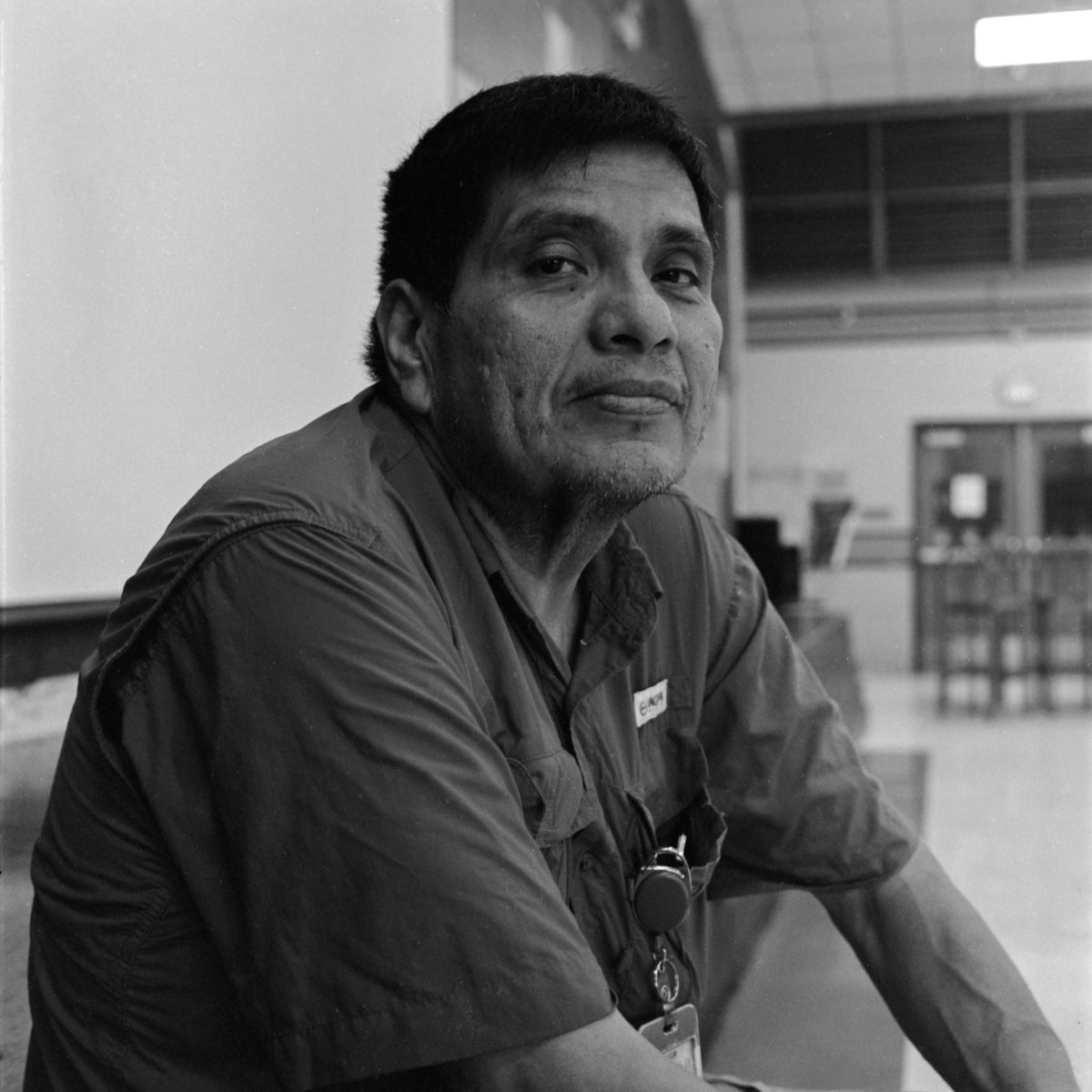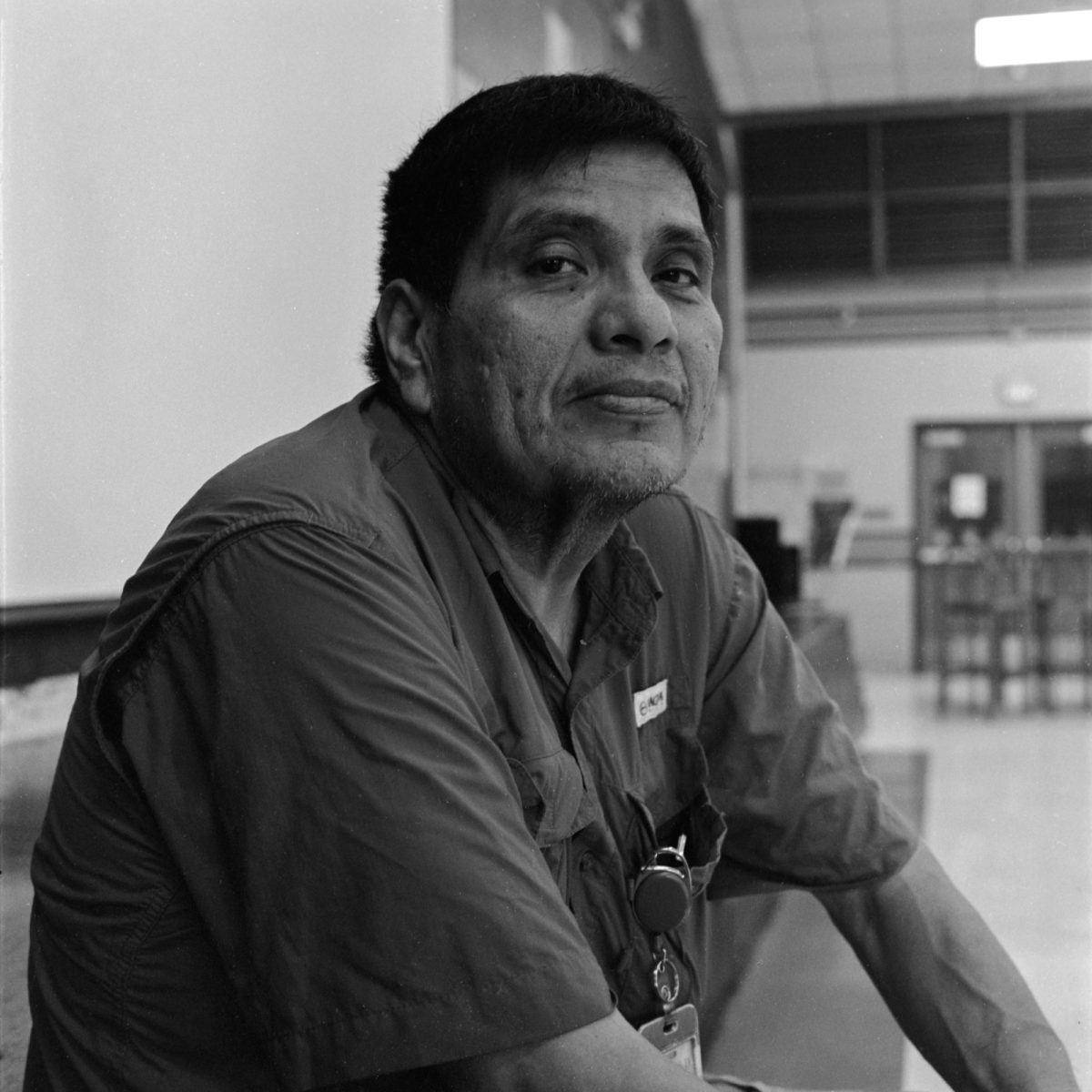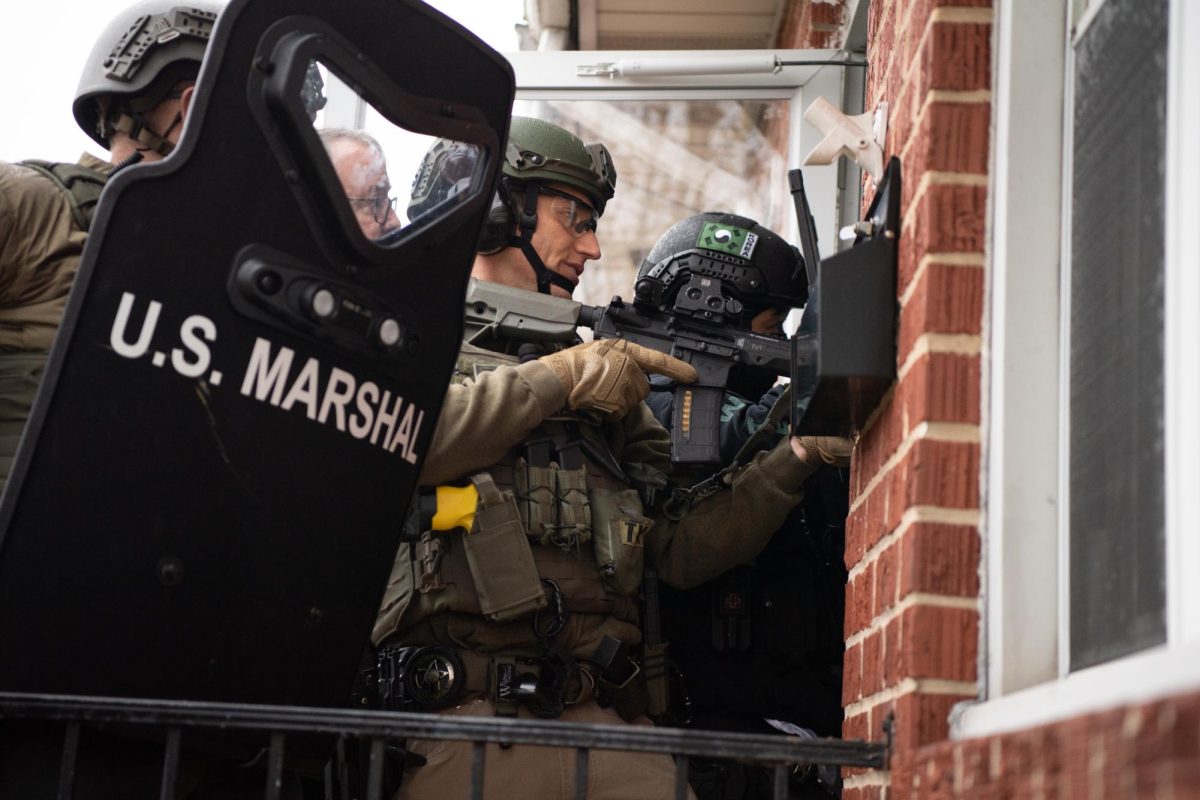At the Capitol on Sept. 12, the Austin Council of PTAs sponsored a panel of speakers including KUT education reporter Becky Fogel, Josh Sanderson (executive director of the equity center), James Talarico (Texas House Representative of District 50), Mandy Drogin (campaign director of the Texas Public Policy Foundation) and Lynn Boswell (AISD Board Trustee) met to discuss recent issues in the areas of education and educational funding. These panelists each presented their differing opinions on the issue of school choice and vouchers. These panel conversations discussed issues ranging from misconceptions about the state’s recapture policy to the legacy of the 2019 Texas House Bill 3 to the impact of inflation on the allotment of funding per student. They also discussed the upcoming Proposition A, a move to raise property taxes by an average of $34 a month for the average homeowner in order to avoid Austin ISD cuts to non-state mandated programs such as school nurses, dual language programs, teacher planning periods, academically advanced programs, librarians and some UIL arts and athletics.
Although on a much grander scale covering much of downtown Austin, the Texas Tribune Festival was a similar event, that took place from Sept. 5-7 with several similar panels and events during the festival. At these events, panelists and speakers came from all over to discuss a wide variety of topics, ranging from Palestine protests, first responders in the climate crisis, immigration issues, education, and the upcoming presidential debate. Panelists were anyone from school deans to house reps all speaking on the issues. On the topic of education the panelists discussed a variety of issues including the debate over school vouchers, school funding, and how the pandemic impacted schools.
We are proud to present our series of photographs from the Texas Tribune Festival and the Austin Council of PTAs panel at the Capitol that touch on the education issues facing the Texas state legislature and the Austin Independent School District for this week’s Tuesday Top 10.
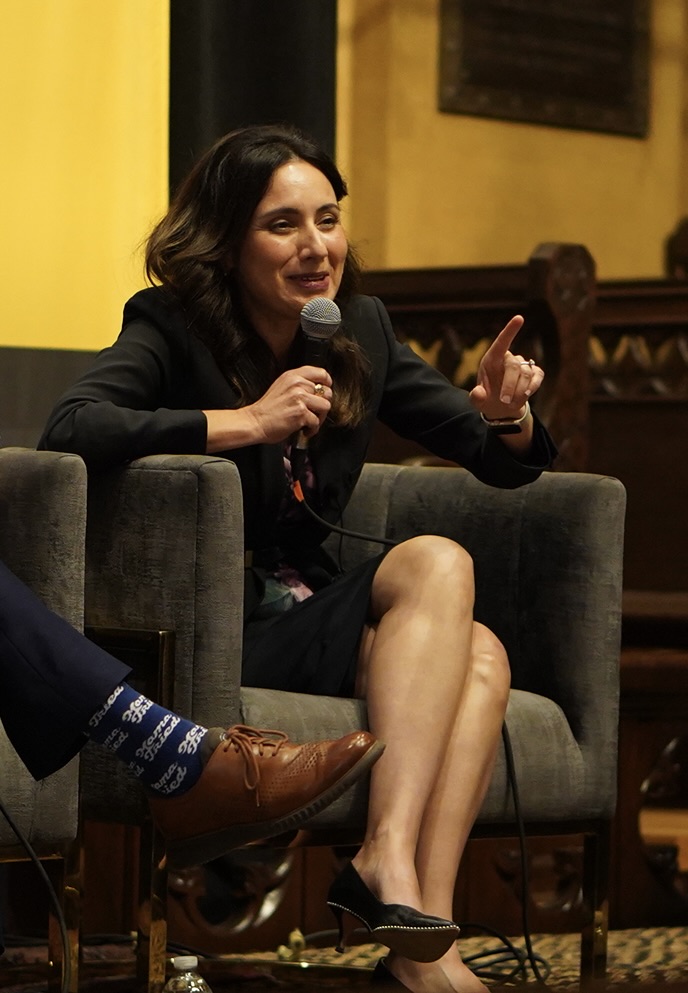
A FIGHT FOR FUNDING: During a Sept. 6 afternoon session at the Texas Tribune Festival, a panel took place between two Texas State representatives and a candidate to serve in the Texas legislature that focused mainly over school vouchers. Texas state Rep. Gina Hinojosa, a Democrat, made the case against school vouchers.
“Public education is the issue that Democrats across the state are running for,” Hinojosa said. “Support for our public schools is foundational to who we are as Texans, and it resonated across party lines during our voucher fight last session. A lot of people who were opposed to vouchers were the ones who worked in the community because this fight was not just in the Capitol, but outside.”
Hinojosa claimed that the voucher issue should not be on the same bill that determines school funding. Having them on the same bill, she said, is tantamount to holding school funding hostage.
“The most frustrating thing about the voucher system is that we waste so much time talking about a program that, whether or not it passes, it will not affect the vast majority of kids in this state and their education,” Hinojosa said. “When you look at our accountability system for whether or not a voucher passes for most kids in this state, it is broken.”
Caption by Eva Sanchez. Photo by David Winter.
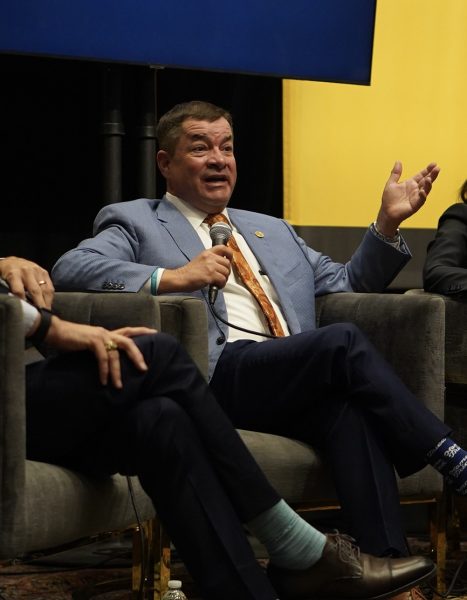
THE ROBINHOOD ISSUE: Texas state Rep. Ken King, a Republican, addresses his audience on Sept. 6 at the Texas Tribune Festival about funding public education in Texas. King stated that to have Texas citizens pay less taxes to support public education, the state needs to reach 51% funding.
“When I served on the committee that instated House Bill 3, it seemed to me that we were at 36 percent state funding,” King said. “After we instated House Bill 3, we were at 46 percent. The goal was to get to 51 percent by the 21st session, but we went backward. The state needs to put a huge amount of money into that system in order to meet that constitutional obligation.”
Another issue King spoke to was the Robin Hood Plan, also known as recapture. The plan was enacted around 1993 as a way to provide equity in school financing. After the plan was enforced, many citizens were upset because the state took a huge percentage of their property taxes and redirected them to less property tax rich districts. King agrees that it should be overturned.
“It’s been said that we need to get rid of Robin Hood, and as a representative who has watched my community pay so much in Robin Hood, I agree,” King said. “Problem is, the Supreme Court has ruled Robin Hood to be a part of equity three different times, and I think it’s gonna stay.”
Caption by Sofia Saucedo. Photo by David Winter.
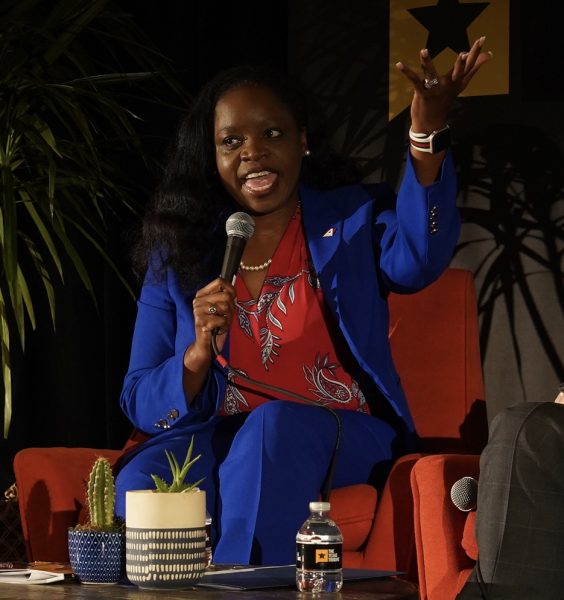
A BOUNCE-BACK DISTRICT: At the recent Texas Tribune Festival, Superintendent LaTonya Goffney of Aldine Independent School District discusses the challenges the school district has faced in the past including the pandemic, school choice vouchers and budget cuts.
A particular struggle for Aldine ISD, a school district in Harris County, is recovering from the COVID-19 pandemic.
“We were hit significantly,” Goffney said. “And with the poverty, with the generational homes, we had to make decisions that impacted our community, including going online for over a year. So we lost a year of instruction.”
The district rebounded from the COVID-19 crisis, however, through improved course materials, increased instruction time and tutoring programs. Despite not having the Head Start program which was awarded to more heavily funded schools, Aldine ISD now outpaces 12 out of 15 districts in standardized testing, a source of pride among Goffney and Aldine teachers.
“Now as we look at where we are, there is some progress that I’m very excited about,” Goffney said. “The fact that COVID hit our communities–Black, Brown and students of poverty–as significantly as it did, impacting a group of students who were already behind, I think it goes without saying that our teachers are proud of the work that we have done, but there is a lot of work to be done.”
For Goffney, that work goes beyond the classroom. Due to the pandemic and natural disasters like Hurricane Beryl, students have struggled to concentrate and even go to school. To combat these issues, Aldine ISD has provided parents with resources to enable their kids to attend school, established an SEL (Social and Emotional Learning) department and ensured that children receive the help they need to recover from trauma.
“It doesn’t matter if you have high quality instruction materials. none of that’s going to work if you don’t have a well-child,” Goffney said.
Sadly, Goffney said the district’s success in rebounding from COVID is threatened by budget cuts, school choice vouchers and the end of pandemic relief funding. School choice vouchers would cut into public school’s funding, which is already low. In response to these issues, Goffney calls for more funding for public schools.
“We’ve been able to strategically fund it through philanthropy and through some of the special remedy funds generated through the state but all of that’s going away,” Goffney said. “So we want to make sure that we take a look at how we are going to continue to bounce back. It’s going to require additional funding.”
Caption by Elizabeth Nation. Photo by David Winter.
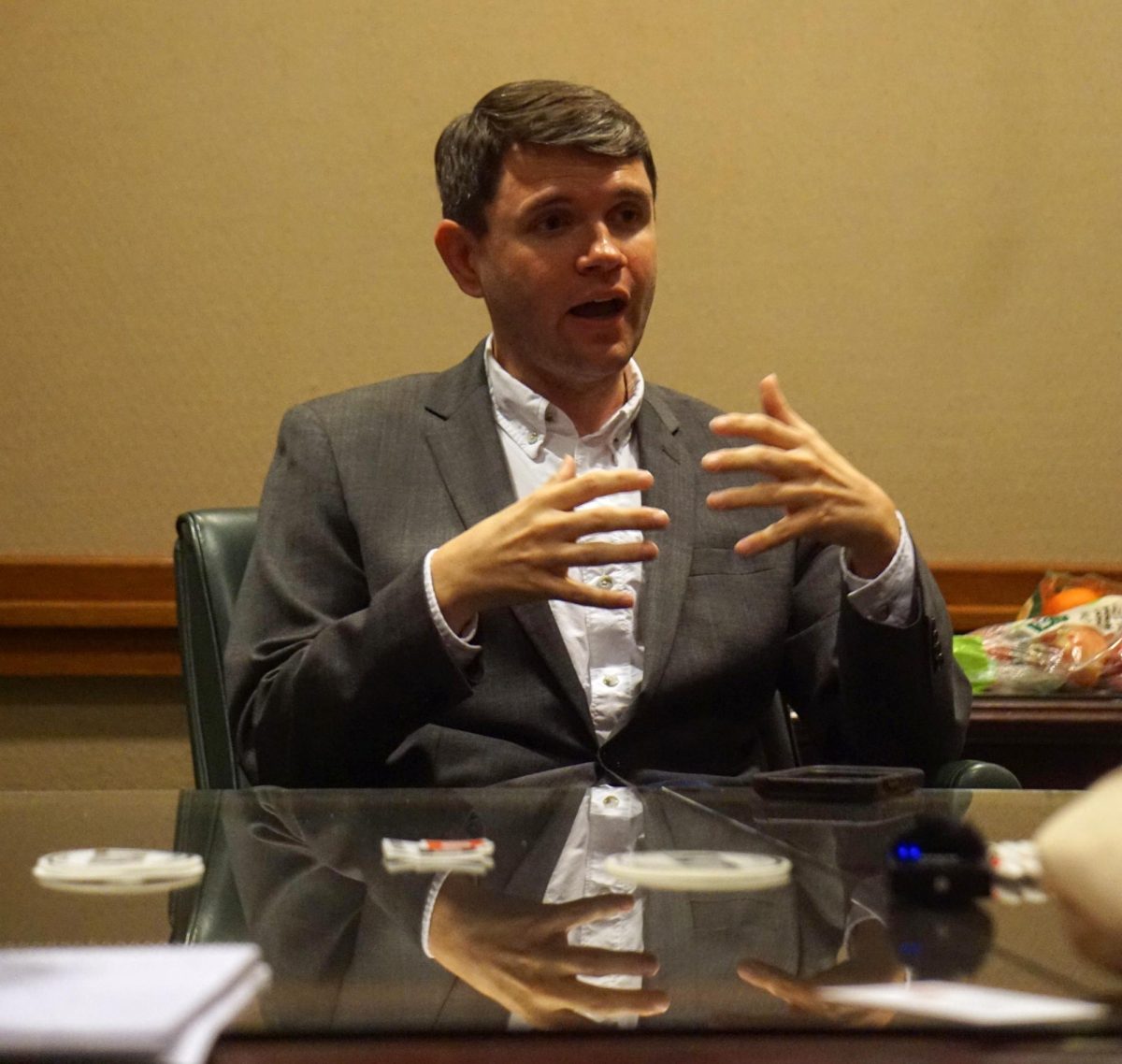
FIGHTING AGAINST VOUCHERS: Texas State Representative James Talarico, a Democrat who represents Round Rock, Taylor, Hutto and Georgetown in Williamson County, spoke to Austin ISD journalism students at the Capitol about school vouchers on Thursday, Sept. 12. Talarico said that he is against school vouchers and when asked if he sees any benefits he stated that he did not.
“I often can see the other argument and I can be sympathetic even when I may come down on one side,” Talarico said. “This is one of those areas where I just think it’s a bad idea all around.”
School vouchers allow parents to choose where to send their children by diverting funds from pubic schools to private schools. This bill is soon to be voted on in Texas, if it is passed it would mean that every student attending private school will receive additional funding if parents chose. Legislators from both parties voted against vouchers in the last session, but with the change in makeup of the legislature, supporters of vouchers believe it stands a better chance to pass in the upcoming session, but Talarico remains an adamant opponent of school vouchers.
“If you see my public statements I’ve called it scams,” Talarico said. “Scams are those things that sound good on the outside, but when you read the fine print you realize they’re screwing you over and ripping you off. I really do feel like vouchers are the same deal.”
Caption by Maddie O’Connor. Photo by Sophia Manos.
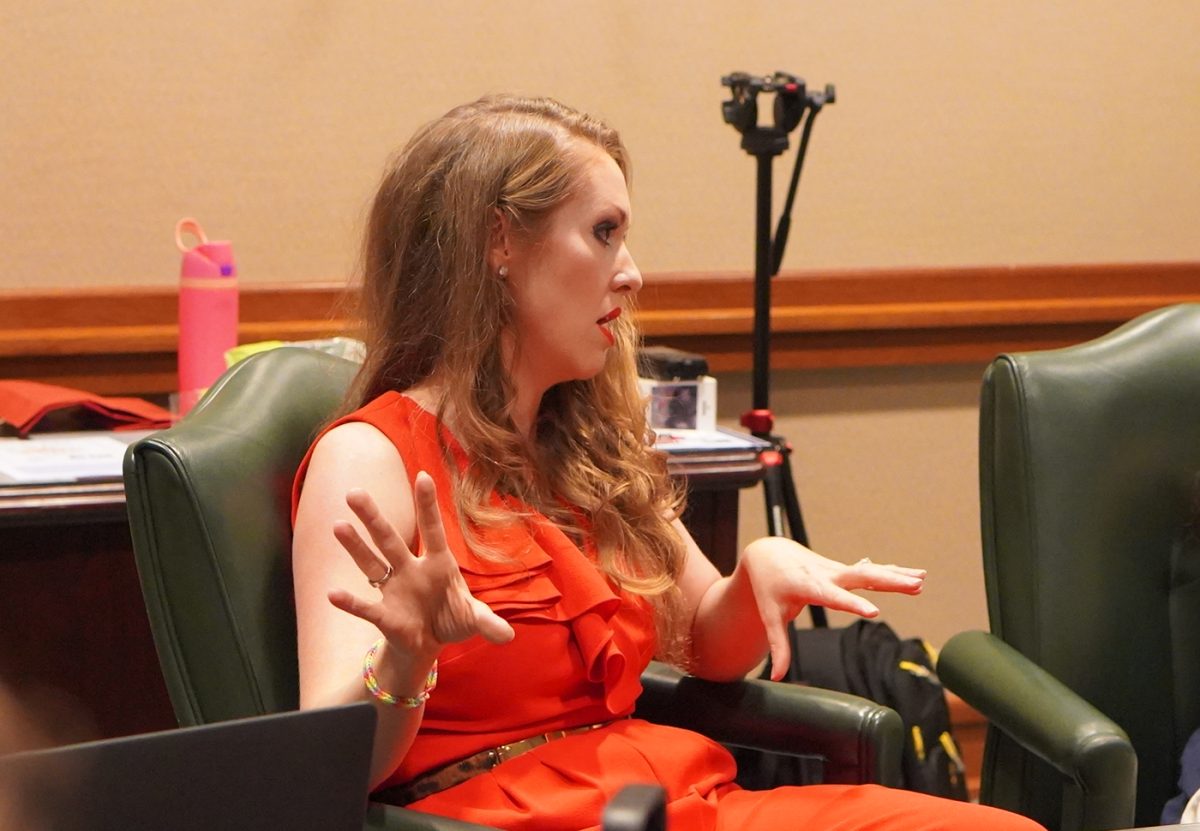
PUSH FOR MORE ACADEMIC FUNDING: Answering several questions about school vouchers at the Capitol panel this past week, Mandy Drogin, campaign director for Next Generation Texas, at the Texas Public Policy Foundation, shared her believe that vouchers should be instituted in Texas in part because she believes that public education spending is wasteful and misguided.
“The funding is there, but we are spending it on so many things that do not impact the majority of kids in the classrooms,” Drogin said. “Like football stadiums for one. I love football, I really do, but I think that’s wrong, I think we should not be doing that.”
Drogin proposes a popular belief among Austin ISD parents: that money be spent in a more academic way, that will benefit each student.
“We need to restructure how kids are funded, and make sure more money goes directly into the classrooms to teachers who want to teach,” Drogin said. “The funding is there, I just think there needs to be an incentive to put towards teachers in high-quality instruction.”
Caption by Priya Thoppil. Photo by Sophia Manos.
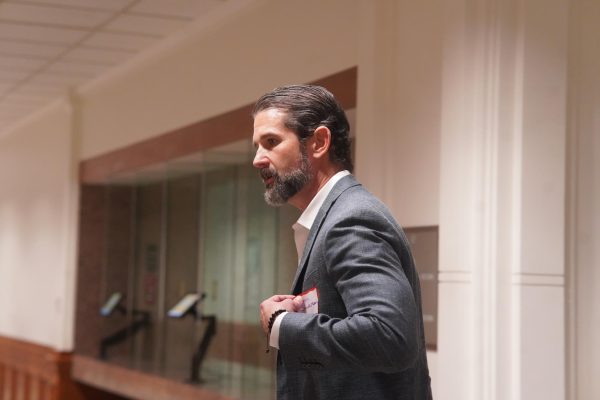
INFLATION PROBLEMS: Executive director of the Equity Center, Josh Sanderson, argued against school vouchers at the Capitol panel on Sept. 12. Sanderson talks about how students are feeling the pain of having fewer certified teachers because districts have less revenue to operate on.
“In the current school year, Texas has more uncertified teachers in classrooms than we’ve ever had in the history of the state,” Sanderson said. “About 70% of school districts statewide are adopting budget deficits in this current year, meaning they’re adopting budgets that spend more money than they intend to bring in in the current year.”
Sanderson blamed inflation for many budgetary issues facing Texas schools.
“The buying power of those dollars that were put into the school finance system in 2019 has eroded significantly over time,” Sanderson said. “This is a lot of the financial pain that school districts are feeling right now because the cost of goods and services has gone up.”
Caption by Josie Linton. Photo by Sophia Manos.

VOUCHERS CREATE HEALTHY COMPETITION: In a debate that took place at the Texas Tribune Festival on Sept. 6, Sen. Phil King, a Republican, shared his opinion in favor of school vouchers. King, who has been in the Texas State Legislature for 26 years, said that the push for school vouchers has become increasingly prominent in recent legislative sessions and that he fully supports the fight for vouchers.
“Even though we want to do whatever we can to improve and help public education, the districts that are poorly performing and there are a lot of them or the schools that are poorly performing and there are a lot of them,” King said. “They’re not going to get fixed overnight, and they’re certainly not going to get fixed in time for the kids that are in now to benefit from them.”
According to King, vouchers will increase competition, and make education available to more students.
“School choice I think is good for competition and … is gonna give those parents or grandparents who are raising kids … an opportunity to do something that they don’t have right now,” King said. “Yes, I know you’re not going to have private schools pop up in tough areas and low-income areas, but they’re gonna pop up faster than you think. They’re gonna pop up a whole lot faster than you think.”
Caption and photo by Lillian Gray.
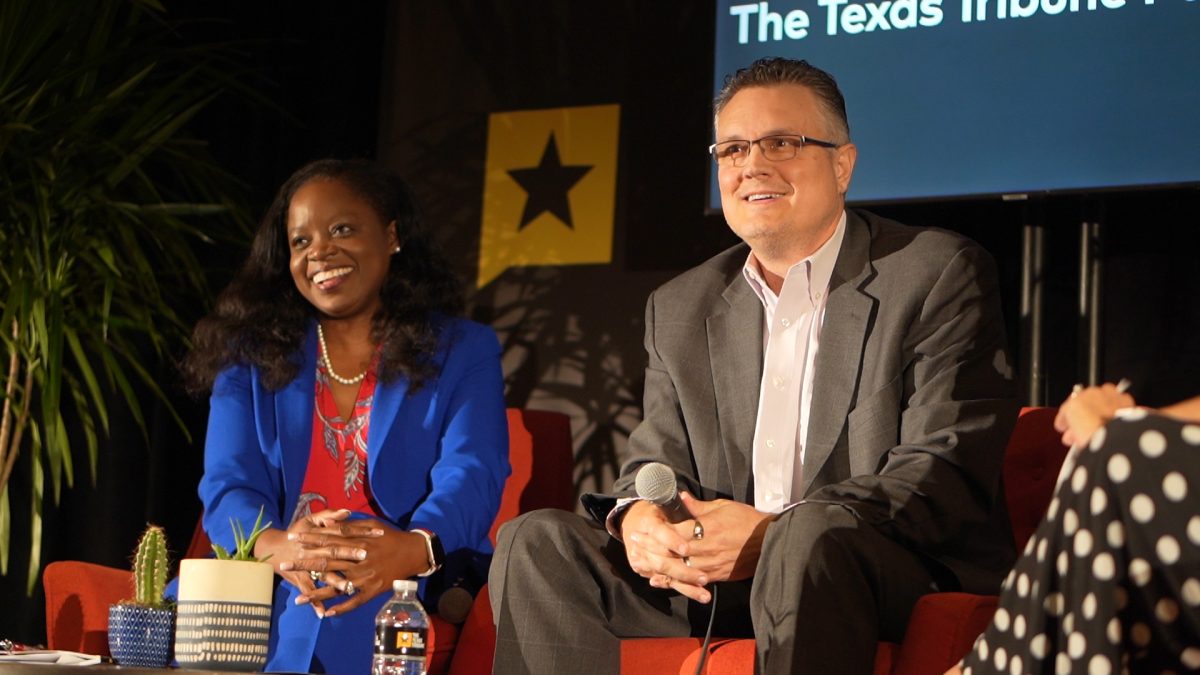
SUPERINTENDENTS TALK ON TEACHER RETENTION: Bobby Ott, right, was one of three Texas superintendents who spoke at Texas Tribune Festival 2024 on the morning of Friday Sept. 6. He is the superintendent for Temple ISD and was named 2022 Best Texas Superintendent.
Through the course of this panel, Ott and fellow panelists Stephanie Elizalde of Dallas ISD (not pictured) and LaTonya Goffney (left) of Aldine ISD discussed many topics, among them how curriculum is determined, how politics have been handled when forced on the school districts and how the lack of funding has affected class size and teacher retention.
Ott said that it was very difficult to attract and retain new teachers.
“What are we doing to make this job attractive to people joining the workforce,” he said.
He went on to explain how low wages and large workloads have given one of the most important jobs in the country a very bad rap as a career path.
But apart from gaining new teachers, retaining experienced and tested teachers has also been a problem. With increasing class sizes and wages that don’t account for inflation, it’s hard for even dedicated educations to stay in teaching.
To make it easier for teachers in his district, Ott says that he strives to hire good principals because they are capable of unloading some of the burden off teachers and allowing their attention to stay in the classroom.
Ott also mentioned a wish list he has for state policy makers. Improved funding is at the top of his list. In an ideal world, he said he would raise teachers pay and better fund special programs, basic needs and more.
Caption by Zev Zent. Photo by Dave Winter.
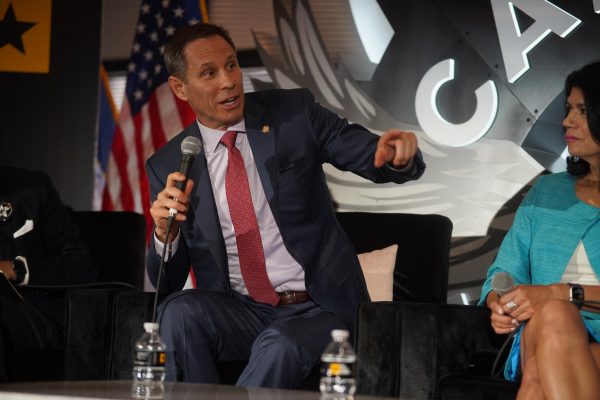
A COUNTER TO VOUCHERS: At the Texas Tribune Festival on Sept. 6, Texas Sen. Nathan Johnson gives his opinion against school vouchers. Johnson, a Democrat representing the Dallas area, led an anti-voucher argument opposing fellow Texas Sen. Phil King’s pro-voucher standpoint.
Johnson said that public education is the foundation for all citizens in Texas regardless of political affiliation.
“All Republicans and Democrats want educated kids,” Johnson said. “Vouchers you can look at as a policy issue and a political issue, and I strongly disapprove of the way that issue is being handled in Texas on both fronts.”
Johnson argued that privatizing education funds sounds enticing, but isn’t attainable. He said the focus instead should be on aiding public schools.
“I don’t think we’re really in jeopardy right at this moment of destroying the public education system in Texas,” Johnson said. “But we might be. There are a lot of things we could be doing to help our public education system if we just funded public education the way we did at the levels we set in 2019.”
Johnson believes at this point, vouchers have become too symbolic.
“Politically, vouchers have become a proxy for power in this state,” Johnson said. “And I don’t think that’s the way it should be.”
Caption by Camilla Vandegrift. Photo by Lillian Gray.
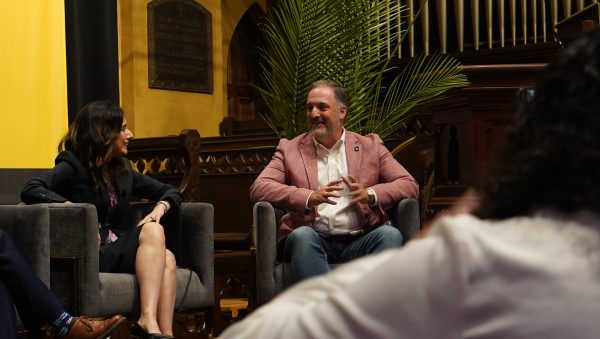
REDIRECTION OF FUNDS: Mitch Little, a Republican nominee for State House District 65 in north Texas, sat in a panel beside House Public Education Committee members Gina Hinojosa and Ken King at the annual Texas Tribune Festival. During the conference, the three were questioned about laws and ideas regarding public education. One topic brought to discussion was funding through tax payer dollars.
Little believes the answer is not to increase the money going towards schools but rather to redirect their funds.
“We’ve spent more than we’ve ever spent [on public education],” Little said, “but the outcomes don’t seem to be improving.”
One thing Little aims to improve is teacher paychecks. Hinojosa brought up the fact that educators in Texas make almost $10,000 below the national average for teacher salaries.
“I think we need to be committing more money and resources to teachers to make sure that the job is done, and that it’s done well,” Little said.
Little plans to do this by budgeting the money put towards public education at a state level rather than at the district level.
“If we’re going to deploy the capital, we need to make sure it’s being deployed in the place where it’s going to have the greatest effect for students,” Little said.
Caption by JoJo Barnard. Photo by David Winter.
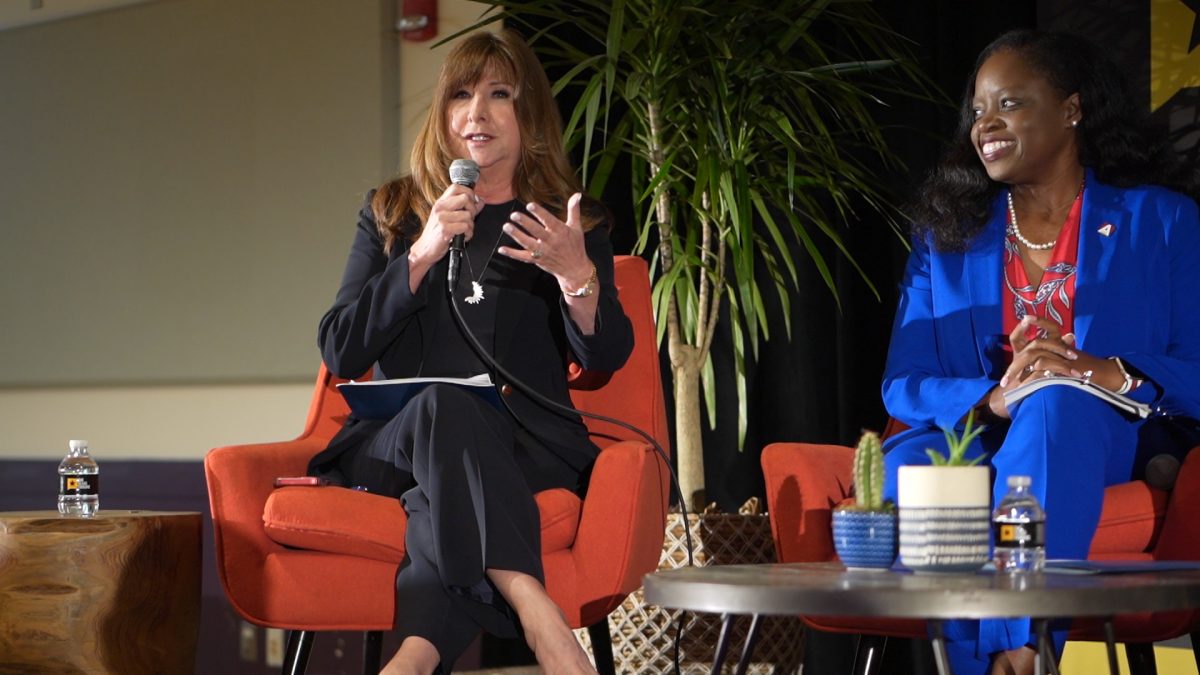
NO FAN OF AUTOMATIC STAAR SCORING: At a session entitled, “What Superintendents Think” at Crail Hall in St. David’s Episcopal Church on the morning of Friday Sept. 6, Dallas superintendent Stephanie Elizalde, left, speaks at the Texas Tribune Festival along with fellow Texas superintendents LaTonya Goffney of the Aldine Independent School District (right) and Bobby Ott of the Temple Independent School District (not pictured).
The superintendents touched on various different subjects such as the aftermath of the pandemic, school vouchers, lack of funding, teacher retention and district scoring. Elizalde spoke about Dallas ISD’s district scoring and how it has been impacted by computer-automated STAAR test scoring.
This year, she said, Dallas ISD expects to receive a C district rating rather than their previous B district rating from two years ago. Elizalde lamented the limitations of what these ratings represent and the harmful effect of the new testing system that Texas has put into place.
“The system we currently have is trying to make something that is very complex represented in a very simple single letter,” Elizalde said.
Even more problematic, Elizalde said, is the new AI method of assessing students’ written responses.
“There’s an inclusion now of an automated scoring engine that we have never experienced before,” Elizalde said.
Elizalde said that there has been an increase of zeros specifically because of the computer-based scoring for essays students are writing on the STAAR test.
“Once we had additional training on a new standard, on a new assessment, we always see improvement,” she said. “We trained our teachers–all of us did–this entire past year and yet we saw an increase in the numbers of zeros on the written constructed responses, and the only variable that changed was the automated scoring.”
Caption by Tallulah McAuliffe. Photo by Dave Winter.
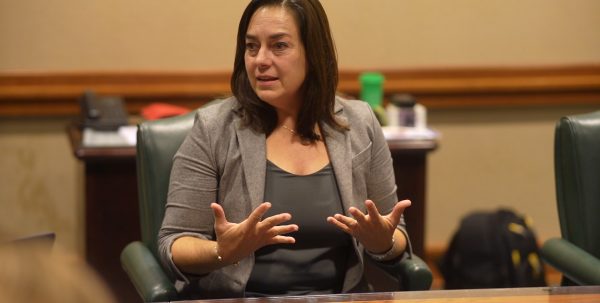
STEP IN THE RIGHT DIRECTION: AISD Trustee Board Member Lynn Boswell speaks on the upcoming voter approval tax rate elections and what it means for taxpayers voting this past week at the Capitol panel. Boswell said one of the most important things on the ballot is AISD Proposition A.
“[It’s] the only option we have under state law to increase funding to our local public schools,” Boswell said.
Boswell urges people to vote for this proposition because of what it will do for the school systems. She believes that this will better support teachers, bring new academic support to students, add mental health support and reduce budget deficits.
“[It will] add 9 cents to our local tax collection,” Boswell said. “That will bring another $41 million into our schools, that translates to about $550 per student.”
Funding for schools is directed by the state that decides how much each district will receive. Since 2019, they chose to not significantly increase personal funding despite inflation.
“We know that inflation has gone up by more than 20% in that time so the buying power of what we have in 2019 has diminished since then,” Boswell said.
Overall, Boswell believes schools need to be funded better than they are currently being funded and passing this proposition is a step in the right direction.
Caption by Callen Romell. Photo by David Winter.


